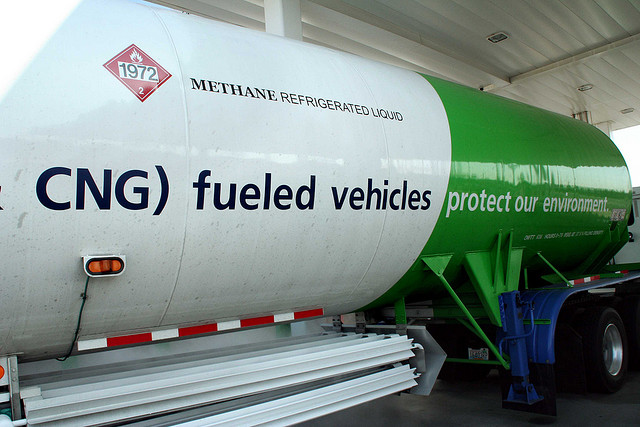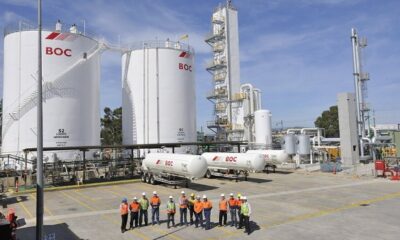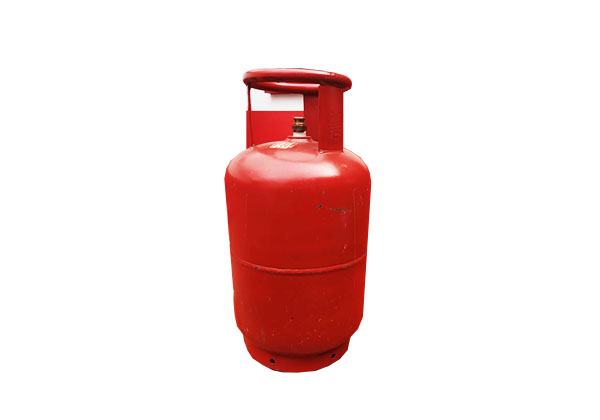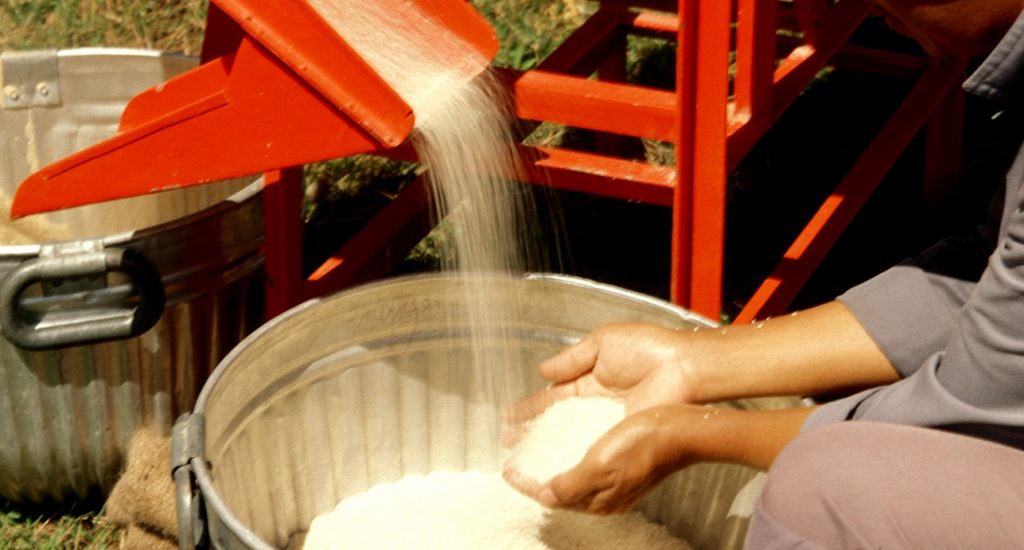The Nigerian Federal Government announced on Tuesday that it will reduce the importation of Premium Motor Spirit (PMS), commonly known as petrol, by approximately $4.4 billion annually through the adoption of Compressed Natural Gas (CNG).
This announcement was made under the Presidential Compressed Natural Gas Initiative (PCNGI).
The initiative aims to convert one million diesel and petrol-powered vehicles to run on CNG, providing a substantial financial reprieve for the country.
According to Zayyan Tambari, Coordinator for Regulations, Compliance, and Facilitation at PCNGI, this move is expected to save Nigeria around $4.4 billion annually in petrol import costs.
Speaking at the Co-Creation Session on Nigeria Gas Vehicle Monitoring System in Abuja, Tambari highlighted the Federal Government’s target to replace 20% of the 50 million liters of petrol consumed daily in Nigeria with CNG.
This shift is part of a broader strategy to enhance energy sustainability and economic resilience.
Tambari’s statements followed a report indicating that the Federal Government had already commenced the rollout of CNG-powered buses and tricycles.
The initiative was officially launched in Ilorin, Kwara State, with Governor Abdulrahman Abdulrazak inaugurating a refueling and conversion center.
The launch included the unveiling of CNG buses and tricycles, marking the beginning of a nationwide deployment.
The Special Adviser to the President on Information and Strategy, Bayo Onanuga, confirmed the launch, emphasizing the Federal Government’s commitment to expanding CNG infrastructure.
“Ilorin’s launch is just the beginning. We are setting up refueling and conversion centers across the country,” Onanuga said.
During the co-creation session in Abuja, the PCNGI noted that an investment of about $890 million would be required to develop the necessary infrastructure for the alternative fuel.
Ekperikpe Ekpo, the Minister of State for Petroleum Resources (Gas), represented by Abel Nsa, underscored the government’s dedication to maximizing the benefits of Nigeria’s abundant gas resources.
Ekpo emphasized the need for public education and adherence to safety standards in the use of CNG.
“We must educate ourselves and adopt new tools and materials to ensure the safe and efficient use of CNG,” he stated, drawing a parallel to the economic impact of mobile phone adoption during former President Olusegun Obasanjo’s tenure.
Ogbugo Ukoha, Executive Director for Distribution System, Storage, and Retailing Infrastructure at the Nigerian Midstream and Downstream Petroleum Regulatory Authority (NMDPRA), announced that new filling stations would only be licensed if they provide CNG dispensing points.
“We are engaging stakeholders to mandate the conversion of fuel trucks and fleet owners to CNG, given the high cost of diesel,” Ukoha said.
Michael Oluwagbemi, Project Director and CEO of PCNGI, highlighted the economic and environmental advantages of CNG, stating that it is cheaper, cleaner, safer, and more sustainable than petrol.
He stressed the importance of a smooth transition, strong regulatory compliance, and cooperation across the ecosystem to ensure the success of the CNG initiative.
The PCNGI has already commenced a nationwide CNG conversion program for mass transit buses, starting in Lagos, Kwara, the Federal Capital Territory, and Rivers states.
The program is being executed in partnership with major transport unions, including the National Union of Road Transport Workers (NURTW), Road Transport Employers’ Association of Nigeria (RTEAN), and Nigerian Association of Road Transport Owners (NARTO).
The initial phase involves eight of over 120 designated conversion workshop sites, with plans to scale up operations across 15 states in the next 45 days.
“This ambitious initiative aims to convert mass transit vehicles to cleaner energy sources, significantly reducing emissions and promoting environmental sustainability,” Oluwagbemi stated.
This landmark initiative marks a significant step towards reducing Nigeria’s dependence on imported petrol, promoting the use of domestic gas resources, and advancing the country’s environmental sustainability goals.
As the nation embarks on this journey, the anticipated $4.4 billion annual savings will be a critical boost to Nigeria’s economy.


 Naira4 weeks ago
Naira4 weeks ago


 News3 weeks ago
News3 weeks ago
 Education4 weeks ago
Education4 weeks ago


 Social Media4 weeks ago
Social Media4 weeks ago
 Technology4 weeks ago
Technology4 weeks ago
 Investment4 weeks ago
Investment4 weeks ago


 Dividends4 weeks ago
Dividends4 weeks ago
 Economy4 weeks ago
Economy4 weeks ago
















